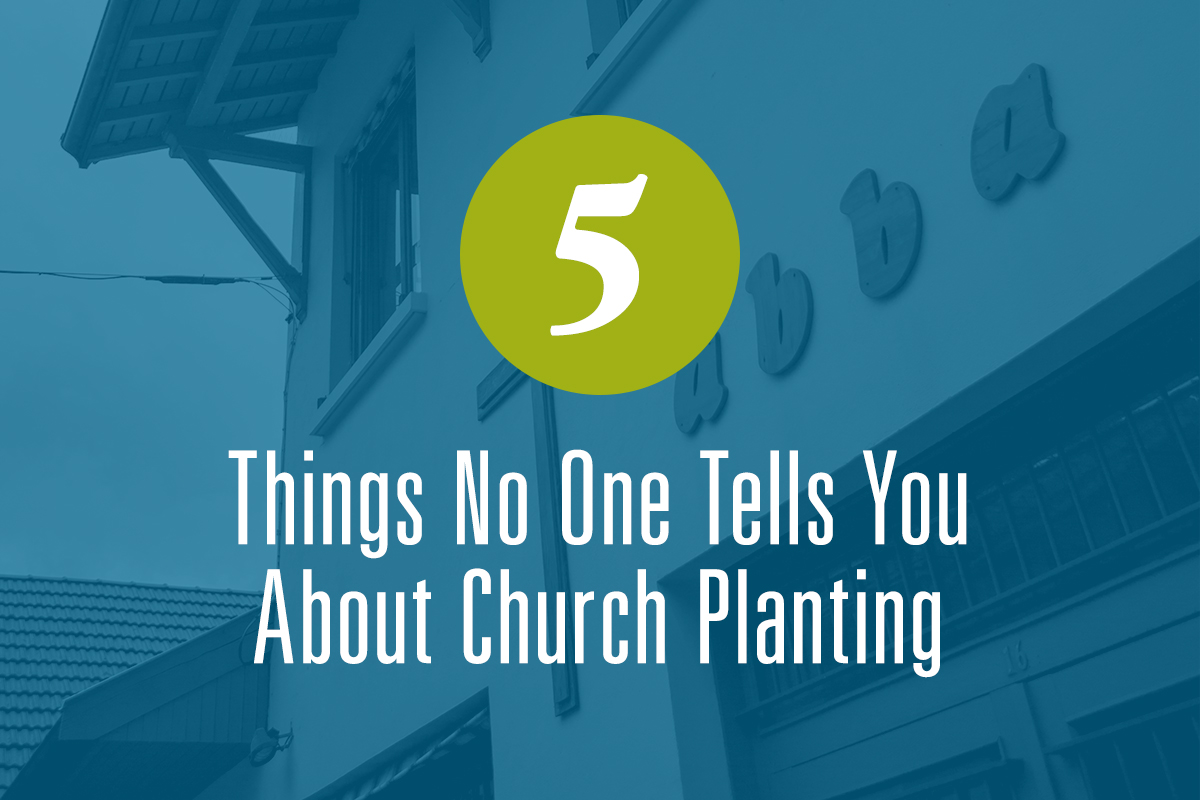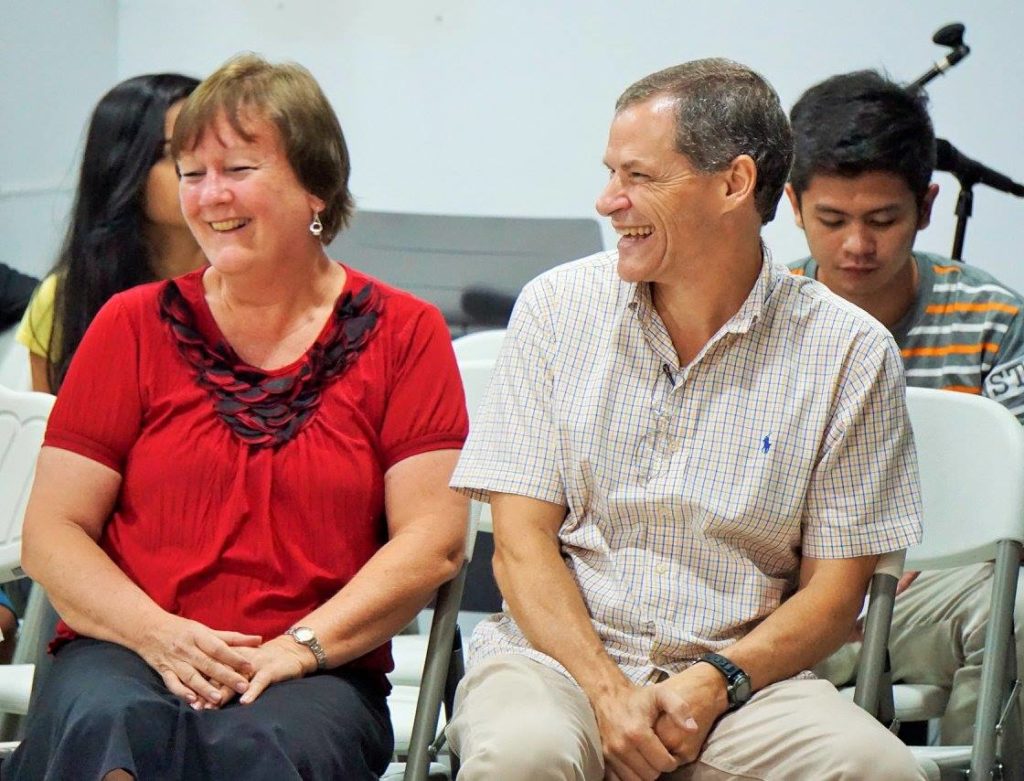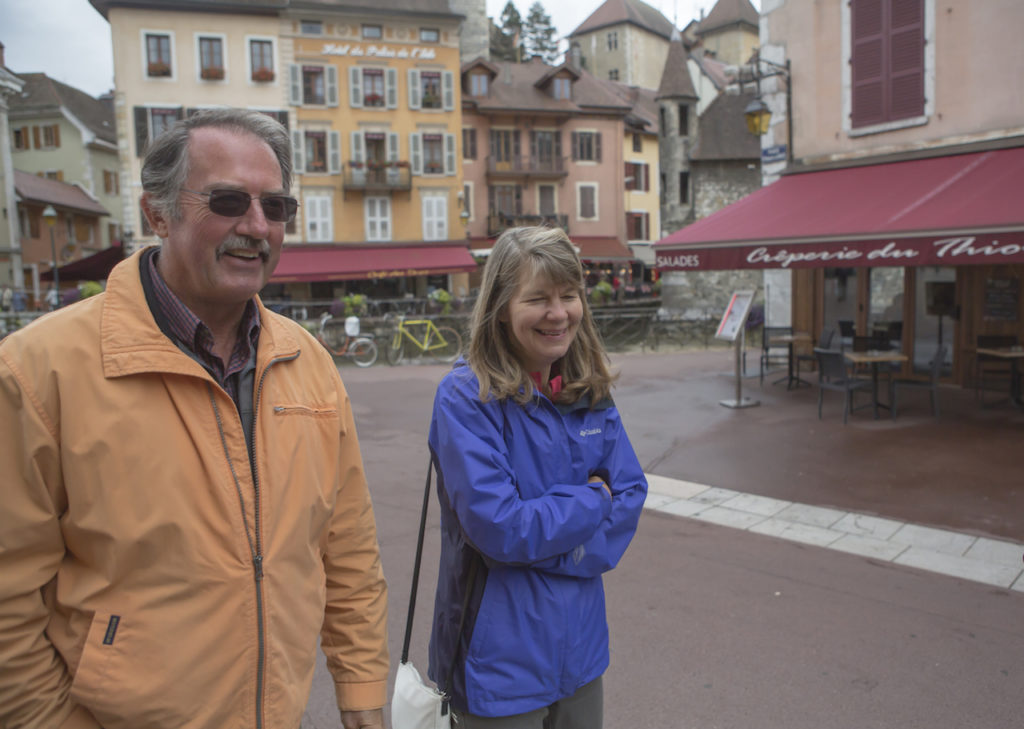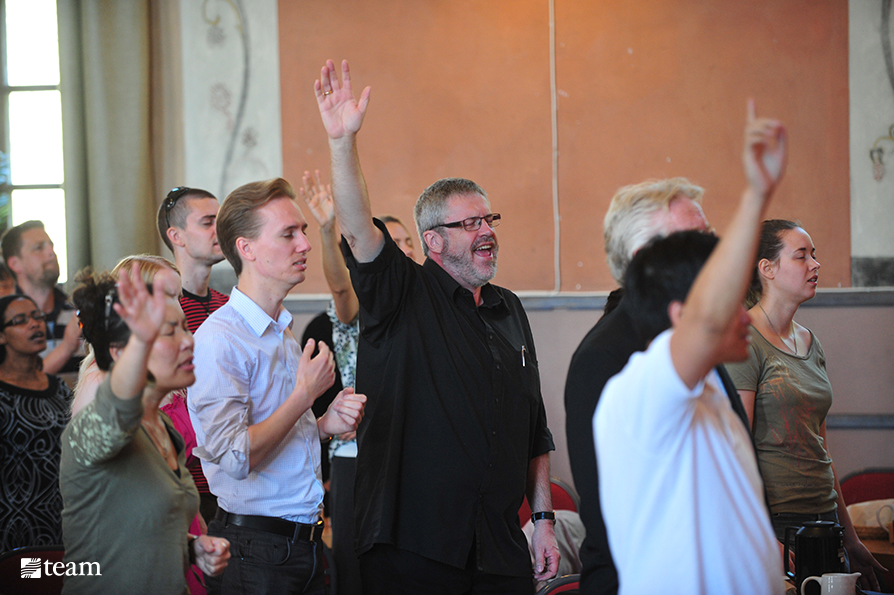
Becoming a Missionary, Missions Resources
5 Things No One Tells You About Church Planting
March 16, 2016
by admin

In the days leading up to the 50th Super Bowl, football experts across the U.S. made their predictions known to the media. But Zach Harrod was probably the only one making public predictions in Prague — and hoping it would help him plant a church.
Step into the ministry of church planting, and God is bound to surprise you with the directions He takes you. Around the world, missionaries have found themselves befriending acrobatic rock dancers, painting Bible stories in the park, working as baristas, using fish to grow tomatoes and, yes, making TV appearances as one of the few coaches for American football in Prague.
But no matter the strategy, many church plants look strikingly similar. So we sat down with a few TEAM missionaries to find out what church planting is and learn a few things you might be surprised to learn about it.
1. A Church Planter Never Gets to Stop Asking, “Where Does God Want Me to Serve?”
When most of us think of missionaries determining their ministry location, we think of what country they’ll serve in and leave it at that. In reality, the question of location is a constant in a church planter’s career.

David and Kathy North have served as missionaries for over three decades, often in places they would have never expected. Photo courtesy of the Norths.
Kathy and David North have planted churches in the Philippines for 30 years, but their original plan was to work among Muslims in Indonesia.
“We would have never chosen the Philippines because we had heard the Philippines was a Christian nation,” Kathy said.
But TEAM asked the Norths to wait in the Philippines for their visas to Indonesia, and while they ministered there, they realized many Filipinos believed the Bible was true, but had no idea what it said. Since then, the Norths have worked with five church planting teams, which meant moving to new communities and learning new languages.
Most recently, Filipino church leaders asked them to put a focus on the Philippines’ professional sector, rather than the poor, because it’s easier for the gospel to trickle down than to filter up in that society. The simple shift affects everything from where they live to what language they speak at church.
2. Planting a Church is Way More Than Handing Out Tracts and Leading Bible Studies.
Before you can invite people to church, you have to build relationships. But much like location, the strategy for this might be different with every church you plant. For experienced church planters, the need for flexibility (and humility) is no surprise.
“People come and they say, ‘I can do this, I’ve done this, I’ve have all this training,’” said Steve Niles, a missionary to France. But “it doesn’t always transpose from an American context to a foreign context.”
Even after 37 years in the same country, Steve and his wife, Donna, put a priority on doing research at the library and talking with local people to see what will be truly effective.
Their last city, Annecy, is known for its beauty and artistic community, so they began holding “artistic afternoons,” with painting, performances and other activities. The eventual result was a church with an orchestra, regular skits during the service and artistic visuals. Now, in Aix-les-Bains, they’re putting more focus on academics by tutoring children and holding English club for adults.
As they reach out to the upper class, the Norths’ team members have started a basketball league, joined the local school’s PTA and are looking at how they can make connections with the community college.
And in Prague, Harrord splits his time between working as an assistant pastor and coaching three American football teams. The latter has given him chances to make TV appearances and even share bits of his testimony on a national level.
“I feel like, as a missionary and a pastor, I need something that’s natural, that I am proficient at. … It sort of builds up some credibility and some capital,” Harrod said. “People know that I’m in it for the long haul, that I’m committed.”
3. Discipleship Begins Before Salvation.

A football career at an American university prepared Zach to coach the Prague Lions, where he leads the players on the field and off. Photo by TEAM.
“For me, discipleship begins the moment I meet somebody, whether they’re a believer or not,” Harrod said. “So all my guys [on the teams], whether they’re interested, not interested, whatever, they’ve been discipled since the moment they met me.”
At training camps, Harrod leads players in 10-15 minute “quiet times” of reflection, and he says that even the act of apologizing, in a culture where that’s seen as a sign of weakness, can create a teaching moment.
In France, a new believer, Guillaume, asked Steve what to do about his live-in girlfriend. He knew it was wrong, but he believed leaving her after living as a married couple would be like getting a divorce. So the team invited Guillaume’s girlfriend to join a discipleship group, and gradually, she realized her need for a Savior. The now “equally yoked” couple got married in August.
4. The Exit Plan Can Start as Early as Discipleship.
As church planters build relationships, doors are opened for what the Norths call the “collecting” phase: gathering people into a Bible study setting. And it’s at this point that planters also start training local Christians to take long-term control of the church.
It may seem premature to think about leaving just as things are getting started, but it’s important that new Christians have time to think about and prepare for eventually leading the church themselves.

Steve and Donna Niles plant churches in France with the intention of raising up a national pastor to lead as soon as possible. Photo by TEAM.
At a previous church plant, Steve says, people sometimes looked to him as sort of “an apostle,” depending on him over their pastor. So from the beginning of their plant in Annecy, “we installed the fact that I am there to get them to the point of having a French pastor, and my job is not to stay and pastor the church.”
As local believers grow and learn their roles, the larger church body can be established. When the Norths see that a church can stand on its own, they hold an official ceremony to pass the baton from David to the new pastor — and then they leave, letting the church leaders do their jobs as God leads.
5. Church Planting is Both Miserable and Glorious.
We think of them as spiritual giants, but church planters face their challenges as human beings. In foreign countries, with a seemingly impossible task, they go through times of loneliness, discouragement, tension between teammates and even questioning their callings.
“I think it’s a lot harder than I think a lot of people would like it to be. … I’ve only remained by the grace of God,” Harrod said.
Just as all those trials finally pay off with a fully-functioning local church, it’s time to move on. Really, church planting is a commitment to constant transition in order to create long-lasting stability for others. But in the end, that is what makes their efforts worthwhile.
“We’re not just starting ministries that end, you know?” said David North. “But we’re establishing something that’s gonna keep going on, hopefully till the Lord returns.”
Ready to learn more? Click here to download your complete guide to church ministries at TEAM and learn about opportunities to serve, get insights from current missionaries, and discover how to get started on your missionary journey.
Related articles

